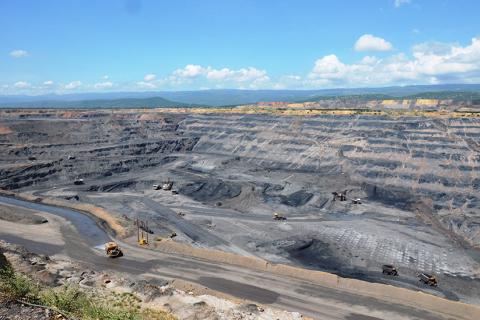On 3 November, join a conversation to reflect on “15 Years of REDD: A Mechanism Rotten at the Core”.
Articles
These readings are part of the publication "15 Years of REDD: A Mechanism Rotten at the Core"
Offsetting is a dangerous distraction from the root causes of the climate crisis. This false solution is the flip side to the oil’s industry initial reaction to climate science: denial. Big Polluters did not invent carbon trading. But they have supported, heavily lobbied for and promoted carbon trading.
At the UN climate conference in 2021, the government of Gabon presented itself as champion in the fight against climate breakdown. Would fossil fuel extraction in Gabon come to an end? No. At its core are a deal signed in 2019 with the fossil fuel producer Norway and the Grande Mayumba project.
The design of the complaint mechanism has systematically failed to resolve the communities' complaints. But then, why does this mechanism exist?
The UK company Envirotrade began a REDD+ project in 2003 that involved communities in the buffer zone of the Gorongosa National Park. In 2018, the company abandoned the region, leaving behind unfulfilled obligations, debts to villagers and hundreds of perplexed families.
‘Carbon concessions’ established to generate and sell carbon credits are also deeply eroding communities’ structures, their organization and community reproduction.
This article outlines the carbon pricing system in Colombia and reveals how mining companies have been using REDD+ to legally avoid paying taxes while claiming ‘carbon neutrality’.
Letícia Yawanawa, an indigenous leader from Acre, and Dercy Teles de Carvalho, ex-president of the Xapuri Rural Workers’ Union and an advocate for "extrativistas" talk about how REDD+ has affected the lives of women in communities that depend on forests.
Interview with Tom Goldtooth, Indigenous Environmental Network.
For REDD+ to work, it has to divide people in three classes. One is that which supposedly saves the forests – ‘active people with initiative’. A second class supposedly lets forests die when no REDD+ money is being paid to keep them alive – ‘predictably passive beings’. And a third class which mainly applauds the first class efforts.
The underlying assumption behind REDD is a dangerous lie: That the climate impact of all carbon is the same - be it the carbon released from vegetation (‘Biotic Carbon’) or the carbon that is released from burning oil, gas or coal (‘Fossil Carbon’).











